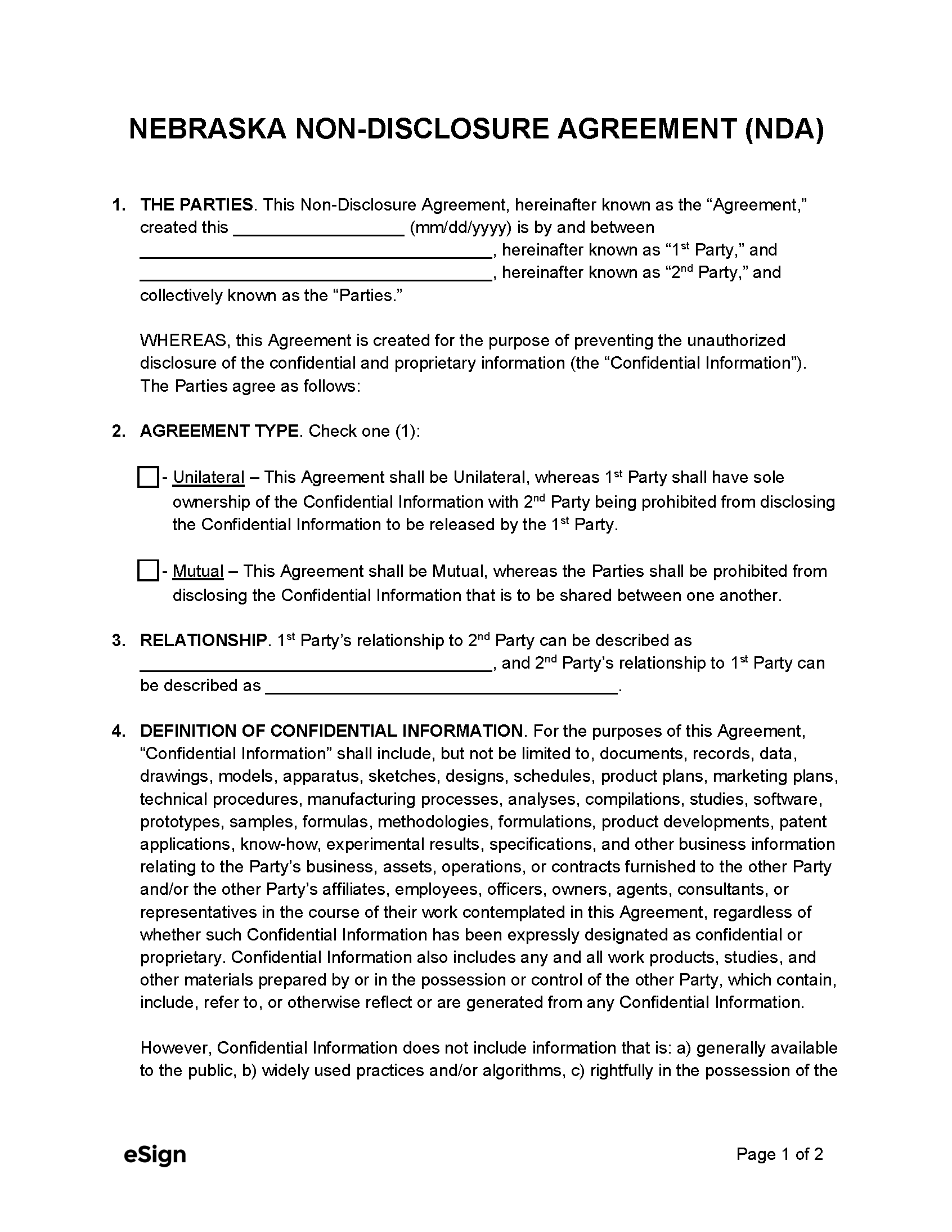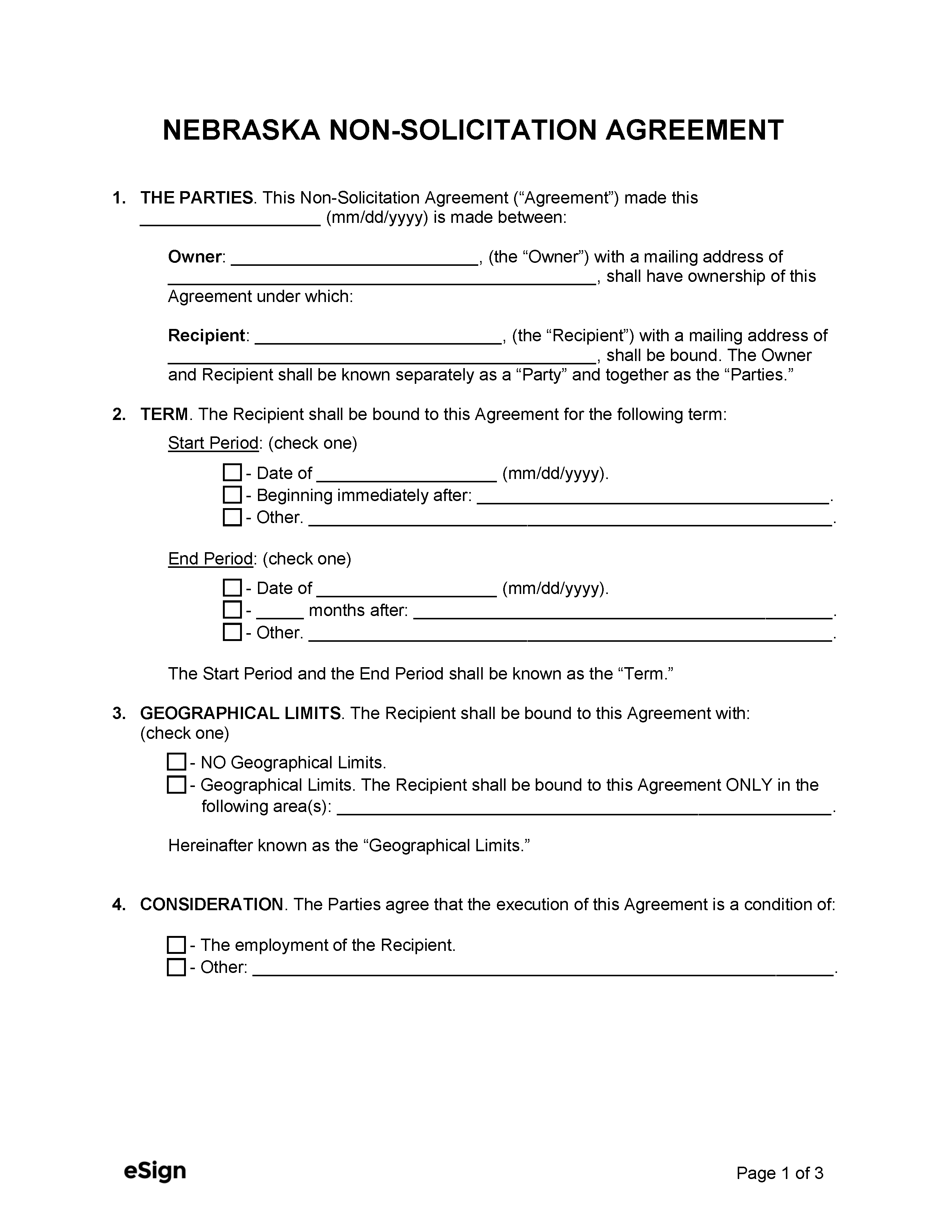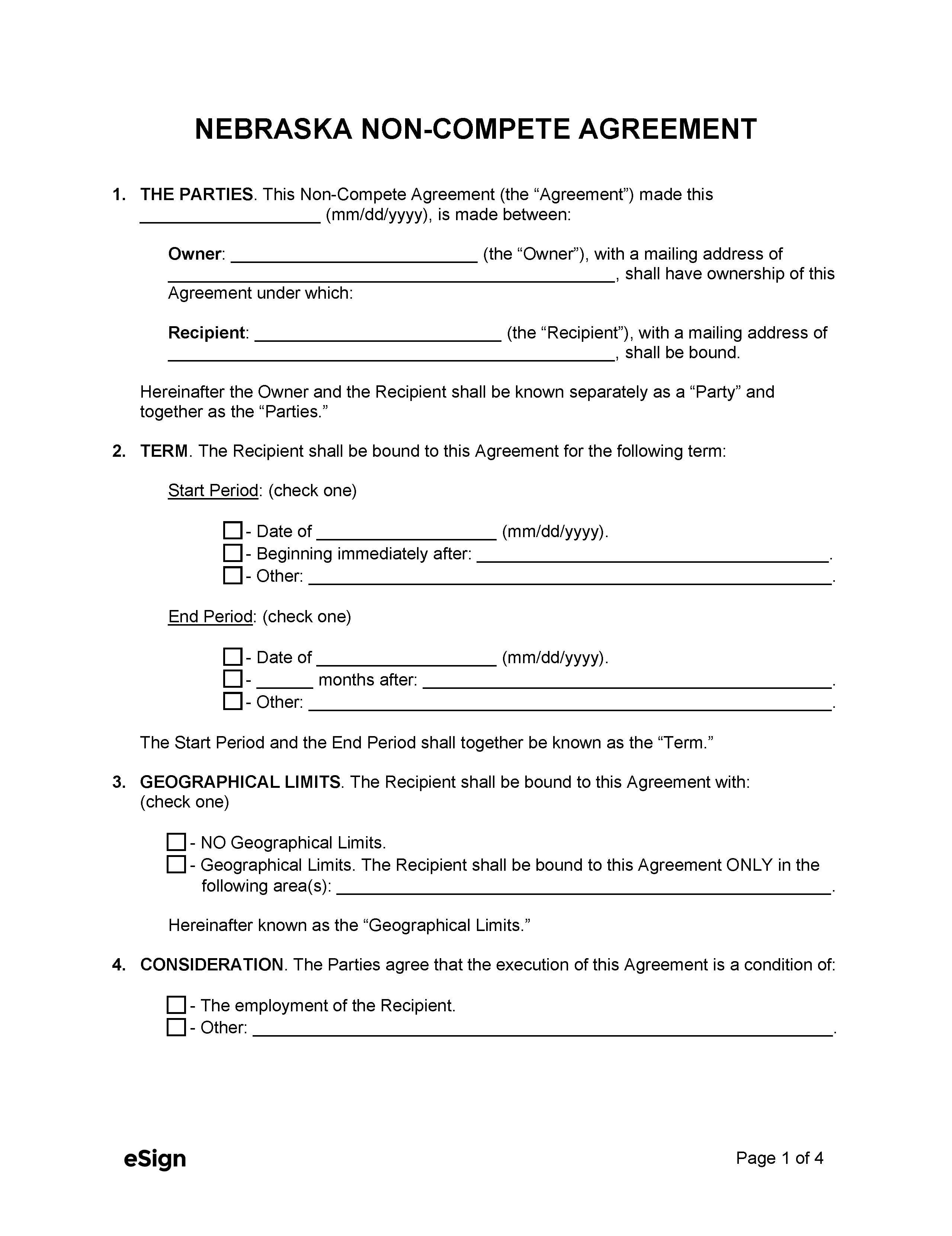In Nebraska, non-competes are typically viewed as an unnecessary restraint on trade unless they are equitable for both parties, so the provisions contained within the document must be carefully defined. The document establishes the durational and geographical limits, the type of consideration offered, and what actions of competition or solicitation are prohibited.
Contents |
Enforceability in Nebraska
Non-compete agreements ancillary to an employment contract are enforceable in Nebraska. Courts are more lenient and generally more prepared to enforce non-competes in the context of a business sale rather than an employer-employee relationship.[1] However, if the employer is protecting a legitimate business interest, rather than preventing ordinary competition, a non-compete can be used against an employee.[2]
When it IS Enforceable
- Reasonable. Non-competes are only considered valid if they are equitable. In order to determine reasonableness, courts of law will check to make sure the following statements are true:
- The agreement is not injurious to the general public.
- The restrictions are only as far-reaching as necessary to protect the employer’s goodwill, customer contacts, trade secrets, or other confidential information.
- The restrictions do not create an undue hardship for the employee.[3]
- Business sales. When applying non-competes to the sale of a business, the agreement must be reasonable in character, space, and time to the extent that is necessary to safeguard the goodwill and other business interests of the buyer.[4]
- Customer contact. Employers can prohibit an employee from soliciting customers and clients, but only those customers/clients with whom the employee had direct personal contact.[5]
When it’s NOT Enforceable
- Attorneys. Non-compete agreements that prohibit a lawyer from practicing law are unenforceable unless the agreement pertains to benefits for the attorney’s retirement.[6]
Maximum Time Period
The duration of a non-compete agreement must not be more restrictive than is needed to protect the business interests of the employer.[4] The following factors are examined by a court of law when determining the reasonability of an NCAs time period:
- “The degree of inequality in bargaining power.
- The risk of the covenantee losing customers.
- The extent of respective participation by the parties in securing and retaining customers
- The good faith of the covenantee.
- The existence of sources or general knowledge pertaining to the identity of customers.
- The nature and extent of the business position held by the covenantor.
- The covenantor’s training, health, education, and needs of his family.
- The current conditions of employment.
- The necessity of the covenantor changing his calling or residence.
- The correspondence of the restraint with the need for protecting the legitimate interests of the covenantee.”[7]
When it comes to restrictive agreements pertaining to confidential information learned by the employee, the employer cannot establish a time period that lasts longer than the usefulness of the information held by the employee.[8]
Geographical Area
Nebraska courts consider the same factors listed above for time restrictions as they do for geographical scope. If the non-compete agreement in question has been executed to prohibit contact with the employer’s customers/clients, it can only cover the areas where the employee performed their duties.[3] More specifically, the agreement can only include those customers and clients that the employee was in contact with personally.[5]
Consideration
In order for a non-compete agreement to be fair for both parties, the employer may need to provide consideration to the employee. In general, a court of law will look favorably upon a non-compete if there is consideration “provided” that “is some benefit to one of the parties or a detriment to the other.”[9]
An offer of employment at the time of signing a non-compete is often deemed sufficient consideration. Continued employment will likely be deemed adequate consideration as well.[10]
Sources
- Chambers-Dobson, Inc. v. Squier, 238 Neb. 748, 755-56, 472 N.W.2d 391, 397 (Neb. 1991)
- Moore v. Eggers Consulting Co., 252 Neb. 396, 401, 562 N.W.2d 534, 539 (Neb. 1997)
- Polly v. Ray D. Hilderman Co., 225 Neb. 662, 407 N.W.2d 751 (Neb. 1987)
- H R Block Tax Servs. v. Circle a Enters, 269 Neb. 411, 693 N.W.2d 548 (Neb. 2005)
- Professional Bus. Servs. v. Rosno, 268 Neb. 99, 680 N.W.2d 176 (Neb. 2004)
- Neb. Rules of Prof. Cond. § 3-505.6
- Philip G. Johnson Co. v. Salmen, 211 Neb. 123, 128, 317 N.W.2d 900, 904 (Neb. 1982)
- Brockley v. Lozier Corp., 241 Neb. 449, 461-62, 488 N.W.2d 556, 564 (Neb. 1992)
- Aon Consulting v. Midlands Fin, 275 Neb. 642, 645, 748 N.W.2d 626, 638-39 (Neb. 2008)
- Securities Acceptance Corp. v. Brown, 171 Neb. 406, 415-16, 106 N.W.2d 456, 462-63 (Neb. 1960)
- NRS § 87-404(2)
- Huff v. Swartz, 258 Neb. 820, 825, 606 N.W.2d 461, 466 (Neb. 2000)
Related Forms (2)

Download: PDF, Word (.docx), OpenDocument

Download: PDF, Word (.docx), OpenDocument
